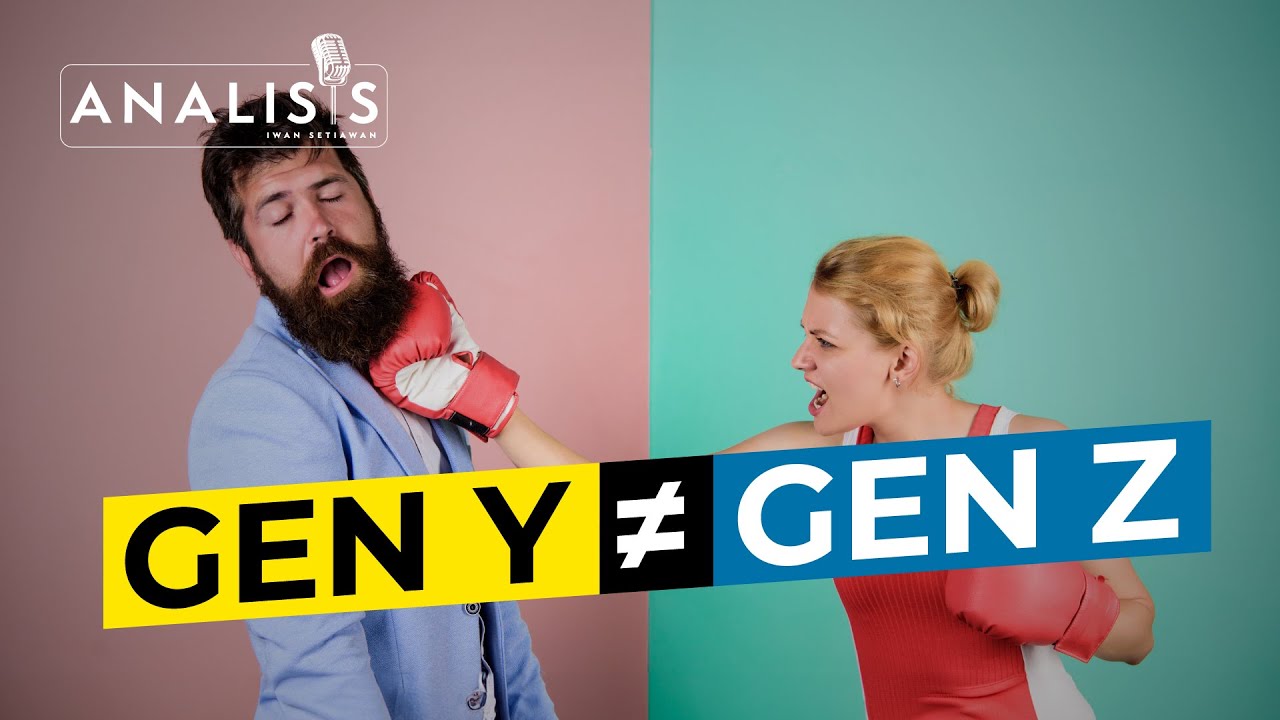Config 2024: How to build for, and with, Gen Z (Jiaona Zhang, CPO, Linktree)
Summary
TLDRThis video script challenges misconceptions about Gen Z and explores how to build products that resonate with this digitally native generation. The speaker emphasizes building with Gen Z, focusing on immediacy, flexibility, and authenticity in product design. Hiring Gen Z for their intuitive understanding of digital interfaces and empowering them with experienced mentors is crucial. The talk concludes with insights on marketing products authentically, highlighting the importance of co-creation with the community and personal over polished content.
Takeaways
- 📱 **Understanding Gen Z**: Gen Z, born between 1997 and 2012, is the first digitally native generation, with a unique coming-of-age experience defined by hyperconnectivity, hyperstimulation, and hyperpersonalization.
- 🌐 **Technology Experience**: Gen Z's experience with technology is vastly different from previous generations, characterized by multiscreen usage, real-time collaboration, and an expectation of technology that autosaves, auto-updates, and auto-optimizes.
- 🔍 **Trust in Technology**: While Gen Z trusts technology to anticipate their needs, they are less trusting of platforms and tools, aware of the ad revenue motivations and ready to switch to alternatives.
- 🔑 **Building for Gen Z**: To build for Gen Z is to build with Gen Z, focusing on principles such as immediacy, flexibility, and authenticity to create products that are intuitive and appealing to this tech-savvy generation.
- 🏁 **Immediacy**: Gen Z values immediacy, expecting instant feedback and gratification, which can be seen in platforms like TikTok that provide an immersive experience with minimal onboarding.
- 🎨 **Flexibility**: Gen Z seeks interfaces that are adaptable to their needs, like Notion, which offers a blank canvas for users to create and explore without constraints.
- 🌟 **Authenticity**: Gen Z demands authenticity, being aware of hidden structures in platforms and preferring interactions that feel genuine and personal over polished corporate messaging.
- 👥 **Hiring Gen Z**: Hiring Gen Z can provide an intuitive understanding of digital interfaces and subcultures, allowing them to contribute fresh perspectives and ideas to product development.
- 💼 **Empowerment**: Empowering Gen Z employees by pairing them with experienced team members creates a complementary relationship that fosters innovation and learning.
- 🤝 **Community Co-Creation**: Engaging the community for feedback and involving them in the product development process nurtures a sense of pride and turns users into advocates.
- 📢 **Marketing Authenticity**: Authentic marketing resonates more with Gen Z; content that feels personal and organic rather than polished and promotional is more effective in engaging this audience.
Q & A
What is the common thread between the words mentioned at the beginning of the script?
-The words mentioned are misconceptions and negative stereotypes often associated with Generation Z as seen in various headlines.
Who is the speaker in the script and what is their purpose?
-The speaker is Jay-Z, who aims to challenge the misconceptions about Generation Z and discuss how to build products that cater to this generation's unique experiences and expectations.
What is the time frame for the birth years of Generation Z as mentioned in the script?
-Generation Z, according to the script, were born between 1997 and 2012.
How does the speaker describe the world they grew up in compared to Gen Z's?
-The speaker describes their world as one where physical actions were required for shopping, using maps, and saving work, contrasting it with Gen Z's experience of hyperconnectivity, hyper stimulation, and hyper personalization.
What are the three key principles the speaker suggests for building a product that is intuitive to Gen Z?
-The three key principles are immediacy, flexibility, and authenticity.
What does the speaker mean by 'immediacy' in the context of product design for Gen Z?
-Immediacy refers to Gen Z's expectation for immediate feedback and gratification, such as liking a post and seeing results instantly or receiving an order hours after placing it.
Can you explain the concept of 'flexibility' as it applies to product interfaces for Gen Z?
-Flexibility means designing interfaces that adapt to the user rather than the user adapting to the interface, allowing for dynamic communication, documentation, and exploration without consequences in a nonlinear way.
Why is 'authenticity' important when building products for Gen Z?
-Authenticity is important because Gen Z is aware of the hidden structures and incentive systems of platforms and tools. They value genuine interactions and are less trusting of contrived or overly polished content.
What is the speaker's stance on hiring Gen Z for product development?
-The speaker advocates for hiring Gen Z because they have an intuitive understanding of digital interfaces and subcultures, which can lead to the creation of more intuitive and fresh products.
How does the speaker suggest empowering Gen Z employees in the workplace?
-The speaker suggests pairing Gen Z employees with more experienced team members to create a highly complementary relationship, allowing for the combination of experience and fresh perspective.
What is the final piece of advice the speaker gives for marketing products to Gen Z?
-The speaker advises to co-create with the community for rapid feedback, and when bringing the product to market, to prioritize personal and authentic content over polished and contrived messaging.
Outlines

This section is available to paid users only. Please upgrade to access this part.
Upgrade NowMindmap

This section is available to paid users only. Please upgrade to access this part.
Upgrade NowKeywords

This section is available to paid users only. Please upgrade to access this part.
Upgrade NowHighlights

This section is available to paid users only. Please upgrade to access this part.
Upgrade NowTranscripts

This section is available to paid users only. Please upgrade to access this part.
Upgrade Now5.0 / 5 (0 votes)





